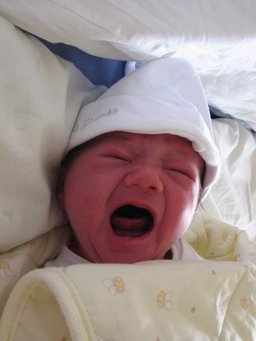 I want to talk about how men can best support their wives/partners when there is a new baby in the house. My job is to support women so maybe this is quite one sided and all about their feelings rather than yours, but I too am a woman and know how it feels from that side of the equation! Today I will cover what your wife / partner wants you to know about how she feels when she has just given birth and next time I will cover what you can DO to support her. She feels vulnerable. I cannot think of any other time in my life when I felt more vulnerable than when I had just given birth to my first baby. Due to a baby who engaged very deeply, very early, I had been having mild contractions for 10 weeks before my baby was born. I had not slept properly for months, follow that up with 17 hours of labour and almost two hours of pushing and I felt like I had been dragged through a hedge backwards and then hit by a truck. I couldn’t even put my own knickers on! Having been a midwife I was much better prepared in terms of skills and expectations but nothing prepares you for the physical fatigue afterwards. A woman who has just given birth is vulnerable on every level – physically, emotionally, hormonally, intellectually, sexually – everything. Let’s break it down:  All babies start to cry more at about 3 weeks old, peaking at 6 weeks and tailing off at about 12 weeks. Colic is not a medical diagnosis; it is just a word that means ‘we don’t know why this healthy baby is crying more than 3 hours a day, more than 3 days a week, for more than 3 weeks’. It may be due to a combination of neurological immaturity, the sensory overload of being introduced to the world and wind issues. We do know that although babies in traditional cultures who are carried all day and have constant access to the breast have shorter bouts of crying, all human babies have a peak in crying activity at 6 weeks old. So it's not you! It's not something you're doing. It can be very upsetting for parents watching their baby cry and feeling like there is nothing they can do to help, but try to keep in mind that the important thing is that you support your baby through their crying and accept that it is not possible for you to stop all crying. I recently read an amazing scientific hypothesis that colic might be due to babies not being able to separate out their breathing and vocalising, as colic occurs at the age where they are transitioning from one type of control of breathing by the nervous system to a different type which will ultimately allow them to speech-breathe when they learn to talk. If you like to read sciencey stuff and won't freak yourself as it also goes into the possible mechanisms by which this may influence risk of SIDS then the full article is available here: http://cosleeping.nd.edu/assets/194726/colic_sids_family_relations_4.pdf Here are some basic colic tips that may help you ride out this difficult period: - |
SUSANNAH BAdelaide Hills Postnatal Support Specialist CATEGORIES
All
|

 RSS Feed
RSS Feed